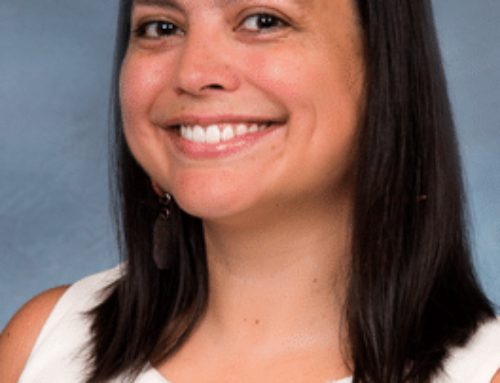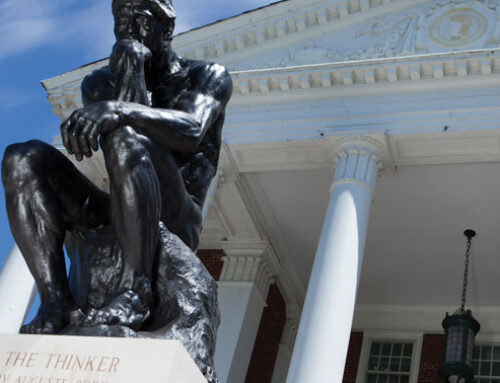By Allison Mayes–
The daily life of a Muslim in the United States is not an easy one. Followers of Islam frequently face Islamaphobia – challenges and discrimination due to their religion.
College student Hussain Tariq has experienced Islamaphobia firsthand.
“Last semester at my internship, I was walking through the metal detectors at the building I worked in. Meanwhile, the security guard was looking through my bag and asked, ‘No weapons of mass destruction today?’ I did not know how to answer her. Out of complete shock, I just collected my belongings and walked away,” Tariq said.
Rona Osman, historian of the Muslim Student Association at U of L, has faced similar situations. “When I was in middle school and even high
“When I was in middle school, and even high school, and would tell people that I was Muslim, people would joke and say things like ‘Is Osama Bin Laden your uncle?’ or ‘You’re not gonna bomb me are you?’ And they really didn’t realize how hurtful that was.”
Student Zohaib Qureshi said that discrimination can come in many forms. “Throughout grade school, up until high school, direct prejudice remarks came from immaturity and lack of understanding. Examples were: ‘son of Osama,’ ‘terrorist,’ using the name Allah (God) mixed with derogatory remarks, instances of exclusion from participation, and even discrimination by adults such as teachers in the past. Ridicule and embarrassment, suspension and shifting schools from disrespect
“Throughout grade school, up until high school, direct prejudice remarks came from immaturity and lack of understanding. Examples were: ‘son of Osama,’ ‘terrorist,’ using the name Allah (God) mixed with derogatory remarks, instances of exclusion from participation and even discrimination by adults such as teachers in the past. Ridicule and embarrassment, suspension and shifting schools from disrespect has been a thing for me.”
“I think I’m very fortunate that I haven’t faced discrimination because of being a Muslim related to school or work in Louisville. I’ve been pleasantly surprised at the respect I’ve gotten from students and teachers alike,” public helath student Rishtya Kakar said.
Public health student Rishtya Kakar said she’s “very fortunate” to not have been discriminated against, but thinks she has not been given the same respect or service at restaurants.
Imam Mohammed Iqbal of the Louisville Islamic Center said that he has experienced Islamaphobia in the past, but that it doesn’t bother him anymore and prefers to think of positive experiences.
Iqbal shared a story about praying on a plane. Flight attendants arranged for him to have a private moment for prayer.
“Initially, praying in awkward spaces was uncomfortable, but after awhile I got used to it,” Iqbal said.
Qureshi said he makes time for Allah daily. “I set time aside from my daily tasks of studying or extracurricular activities to remember Allah by praying at the designated hours. I learn about other’s faith and opinions, but also make sure I spend time learning and understanding my own,” Qureshi said.
Because of the increase in terror attacks, Islam has earned the negative reputation of being a religion that promotes violence and terrorism. “It is quite the opposite. Islam promotes peace, social justice and equality, and treats everyone as a person deserving of respect,” Tariq said.
Kakar said she and her friends have been approached and given them pamphlets or booklets saying horrible things about God, Islam and the Quran.
“I understand they are probably doing it out of the goodness of their hearts because they really see Islam as evil and how it is portrayed by terrorists and the media. However, it is definitely hurtful,” Kakar said.
“I don’t know any religion that’s taught to hate others,” Osman said. “I know they all promote peace and love, and that’s why I love people of all faiths or no faith. We are all simply humans and loving each other is the only way to live peacefully.”
Most Muslims feel the religion is falsely portrayed by the media.
“Islam does not equal ISIS. This is the most common misconception the world has about Muslims,” Iqbal said. Tying the entire religion with extremists is another example of Islam being falsified in the media. “Tying violence with the word Islam is, in entirety, false.”
Osman said another misconception about Islam is that women are oppressed and are forced to dress modestly or wear hijab, which is not just the scarf. She said, “It is unfortunate that there are societies that do make it a law for women to dress a certain way, but those rules were man-made and not Islamic.”
Kakar wears the hijab as a symbol of her faith. “As a Muslim woman who proudly wears hijab and loose clothing, people are often shocked that I speak English with an American accent or that I am teaching and working on my third degree,” Kakar said.
“I hope that by embodying the essence of Islam in my day-to-day life, people will see Islam for the beautiful way of life it is and respect it enough to at least ask questions, rather than rely on the what others tell them about it,” Kakar said.





